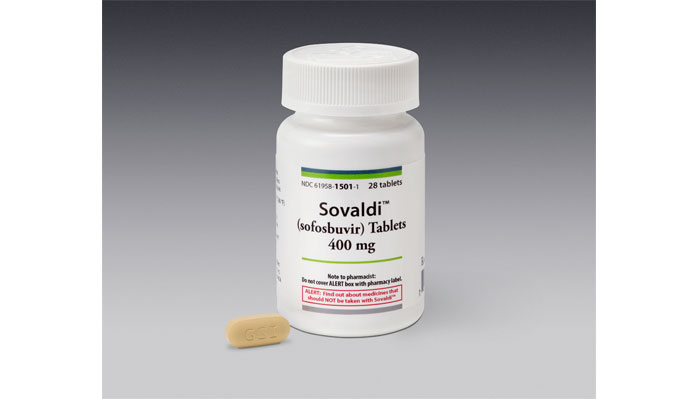AFP
A new hepatitis C drug has shown early promise in patients whose infection with both HIV and hepatitis C has made them traditionally difficult to treat, said a study Saturday.
Patients were given Gilead Sciences' sofosbuvir, a drug approved for the US market in 2013 that has stirred controversy due to its high price tag -- about $1,000 per pill, along with another well-known drug, ribavirin.
The study in the Journal of the American Medical Association's (JAMA) July 23/30 issue included just over 220 people who were treated for either 12 or 24 weeks.
Most of the patients -- between 67 percent and 94 percent depending on the type of hepatitis C they had and whether they had ever been treated for it before -- saw their liver disease disappear and stay away for 12 weeks after they stopped treatment.
The measurement scientists used was known as sustained virologic response (SVR), or what is clinically considered a "cure" of hepatitis C, a serious and often chronic liver disease.
The study ended 12-weeks after treatment ended, so responses beyond that point are unknown.
As many as seven million people worldwide are infected with both human immunodeficiency virus and hepatitis C, according to background information in the article.
Treating both infections is difficult because patients have needed to use interferon for hepatitis C, which interacts poorly with antiretroviral drugs for HIV suppression.
Seven of the 223 in this study discontinued the treatment because of adverse events, most commonly fatigue, insomnia, headache, and nausea.
Researchers noted that the study was not the most rigorous kind. Doctors knew what they were prescribing to patients, and the participants were not randomized to a comparison treatment or placebo.
However, patients "had high rates of sustained HCV virologic response 12 weeks after cessation of therapy," said the study led by Mark Sulkowski of Johns Hopkins University.

